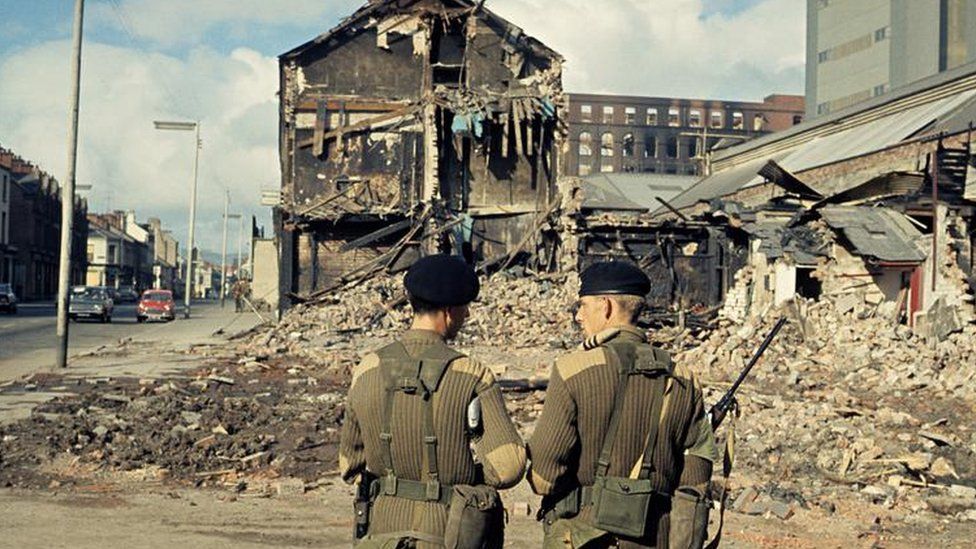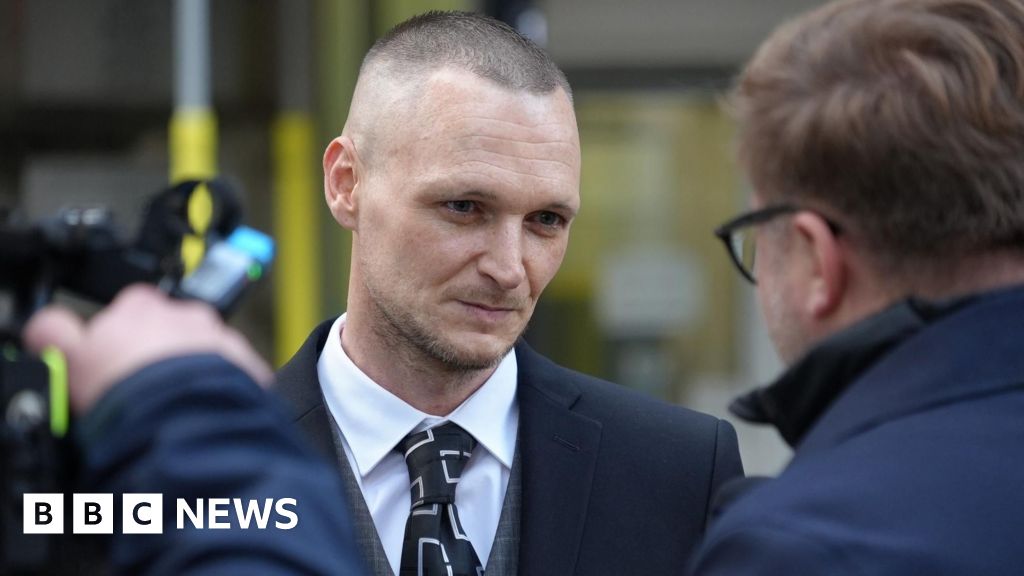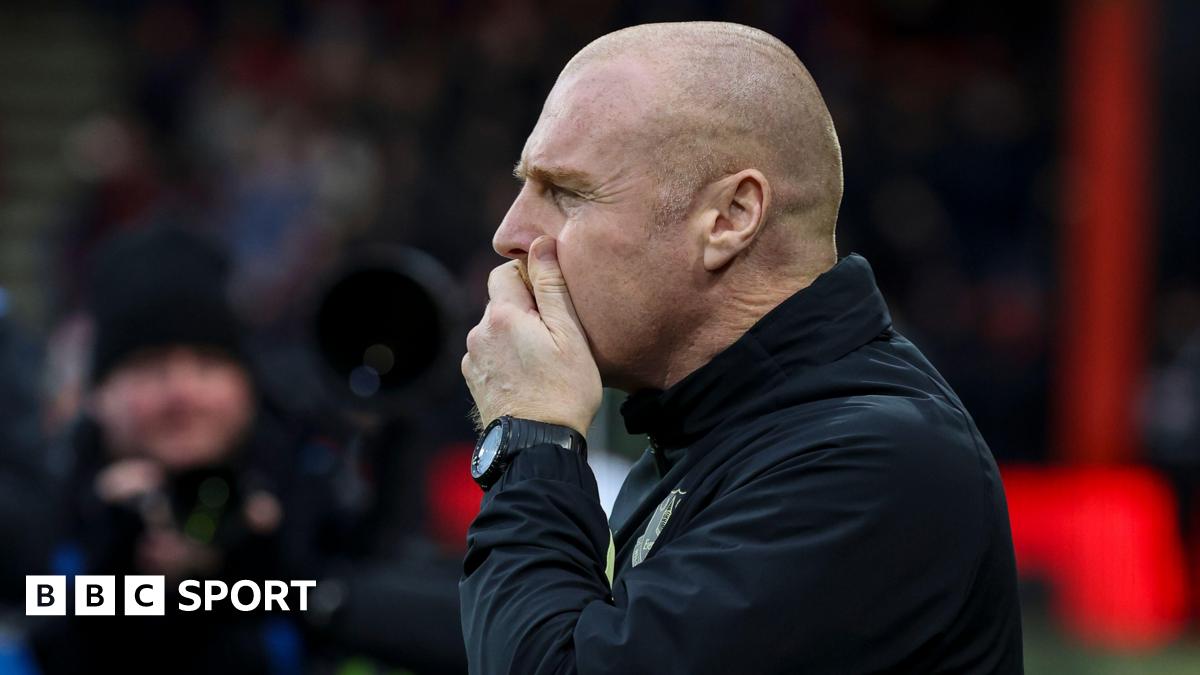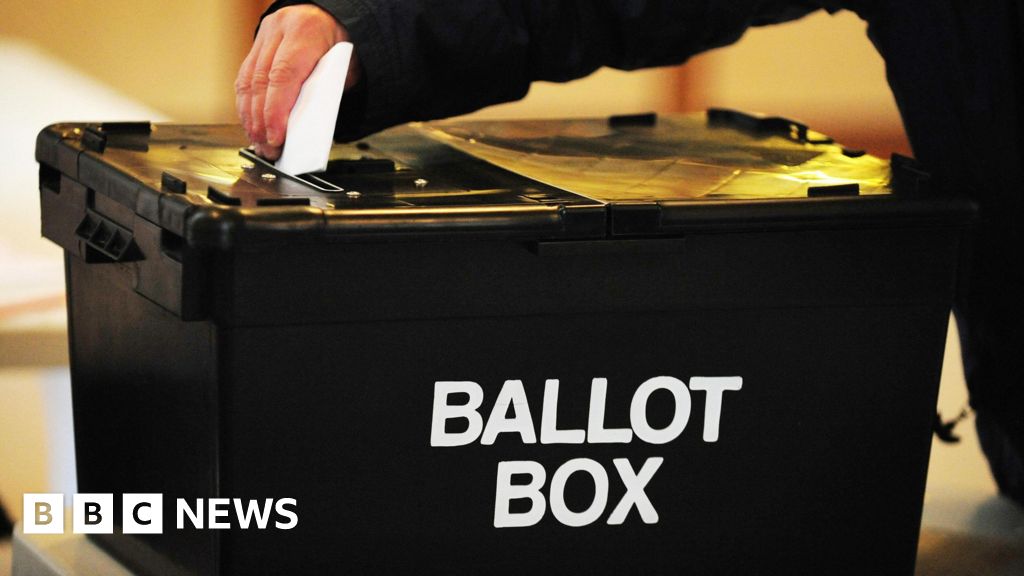
The Troubles was a period of conflict which lasted for 30 years and cost the lives of more than 3,500 people
By Julian O'Neill
BBC News NI crime and justice correspondent
A legal challenge by opponents of the government's Troubles Act is set to begin at Belfast High Court on Tuesday.
They will argue the act does not comply with human rights law.
The law came into force in September and offers a conditional amnesty to individuals accused of conflict-related offences.
Martina Dillon, one of those bringing the case, said: "Victims have been shamefully ignored - we did not want this law."
Her husband, Seamus, 45, was shot dead in a loyalist attack at a hotel in Dungannon, County Tyrone, in 1997.
An inquest into his death is scheduled but it may not be finished before next May's cut-off date under the act.
The act will end future civil litigation and inquests into deaths which occurred during more than 30 years of violence, known as the Northern Ireland Troubles.
It is also likely to limit investigations, which from now on would be undertaken by the Independent Commission for Reconciliation and Information Recovery (ICRIR).
Opponents, which include victims' groups and all political parties at Stormont, have argued it will remove access to justice.
The government described the legislation as an attempt to draw a line under past and advance reconciliation.
It has repeatedly stated the new act is, in its view, human rights compliant.
'We want answers'
Speaking before the hearing, Mrs Dillon said: "We want answers about what happened to our loved ones and we want accountability.
"I fight this oppressive legislation in my husband's memory and in solidarity with other victims having their rights denied."
She is being joined in the case by John McEvoy and Lynda McManus.
Mr McEvoy is a survivor of a loyalist shooting at a pub in Kilcoo, County Down, in 1992.
Ms McManus's father, James, was wounded in the Ormeau Road betting shop massacre in Belfast the same year.
Image source, Pacemaker
Image caption,There have been several protests against the legislation which was opposed by all the main political parties at Stormont
In all, 20 applications for judicial review of the act were received by the High Court.
But a judge selected one as the lead case due to the "broad spectrum" of issues covered by their challenge.
Lawyers for those mounting the challenge claim the act is unconstitutional and incompatible with the Human Rights Act.
The hearing is scheduled to last several days.
'Right this wrong'
Experts have speculated the challenge could take several years to exhaust, as it could go all the way to the UK Supreme Court.
Amnesty International supports the challenge.
Its Northern Ireland deputy director, Grainne Teggart, said: "It is now over to the courts to right this wrong.
"Victims' rights must be upheld and the government cannot dismiss its obligations."
 (1).png)
 1 year ago
29
1 year ago
29


















